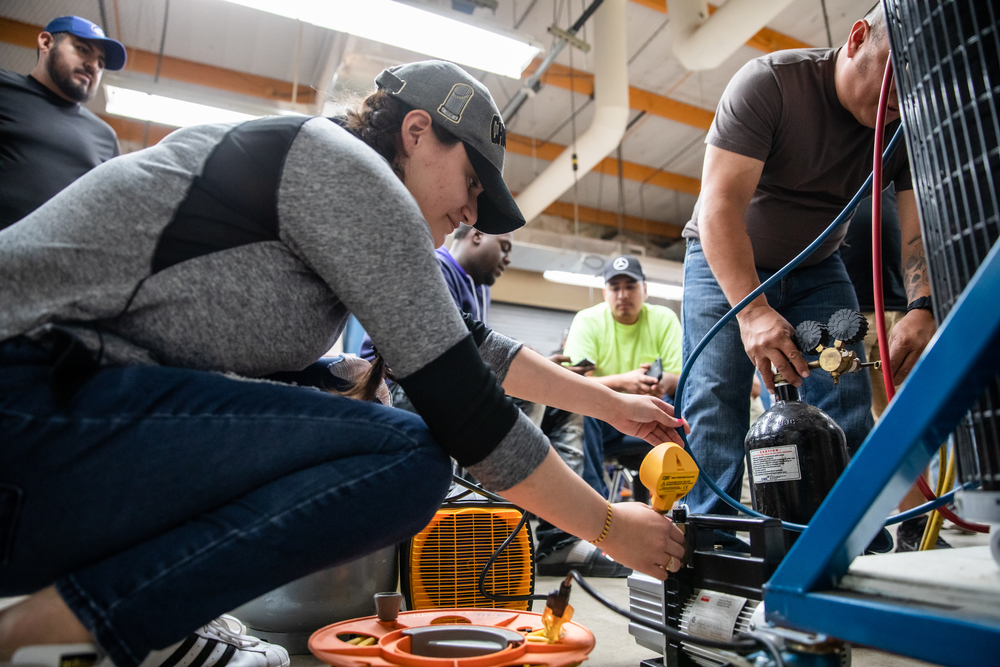The summer heat is coming and isn’t going anywhere anytime soon. Austin Community College District (ACC) Heating, Ventilation, and Air Conditioning (HVAC) experts share things you can do as a homeowner to protect your AC and reduce the cost of energy to cool your home.
Written by: Fereidoun Bakhshi, ACC HVAC Department Chair
There are two parts to a residential air-conditioning unit. The indoor unit is also known as the air handler, and the outside unit is known as the condenser. The efficiency of an AC unit is contingent on the state of these two moments.
Indoor Unit Maintenance
The indoor unit is called the air handler because the blower motor inside this component circulates the air throughout the conditioned space. The air filter should be clean and free of dust and debris to keep this running well. If the air filter is dirty, it will create a restriction to the airflow, hence decreasing efficiency, and in the case of a really dirty filter, an evaporator coil freeze, among other difficulties for the air handler.

An expensive air filter cannot capture all the dust and other impurities in the air, and they will deposit on the evaporator coil and create restrictions on the airflow. Hence a clean coil is essential for the proper operation of an AC unit.
Outdoor Unit Maintenance
The outdoor unit, or the condenser, rejects the heat picked up inside the conditioned space into the outdoors. If the condenser coil is dirty with grass cuttings, dust, and debris, the condenser cannot reject the heat efficiently. Besides the high usage of electricity, it could also create difficulties with the compressor, which is the heart of the unit.
Shrubbery and tall grass should be trimmed to allow the free flow of ambient air around the outdoor unit.
Other Maintenance
It is really important that all the doors and windows in your house close properly and there is no gap. Visual inspection is equally important to ensure that the ductwork carrying the air throughout the conditioned space is sealed properly and the cold air does not escape into the attic.
Lastly, have your AC unit inspected by a professional before the cooling and/or heating season.
ACC offers fast-track programs to skill up HVAC technicians as demand grows rapidly. Right now, you can enroll and enjoy a special 50 percent tuition discount for the HVAC program as well 20+ other programs. In just 16 to 20 weeks, and for under $1,500, students can complete the program and earn two industry certifications. Most students graduate with a job already lined up.
For more information and a full list of the programs, visit austincc.edu/fasttrack.

